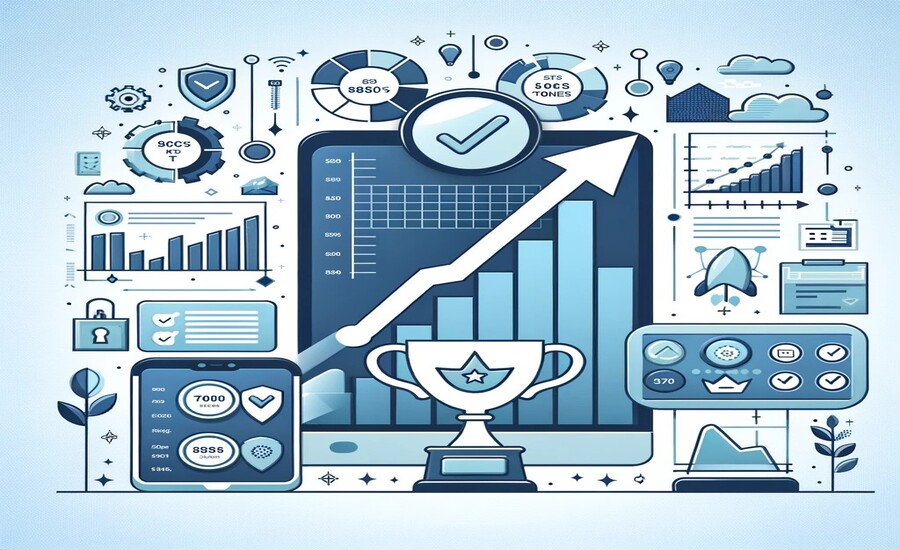A project manager is the heart and soul of every project. Imagine a kitchen in a five-star restaurant. If the chefs had to handle the cooking and the collaboration, the dishes would never be served. There is a point of contact between the people waiting for the guests and the chefs, who manage effective communication, maintain timelines, and ensure quality.
A project manager, for your software projects, is akin to the manager in a restaurant. They take care of the nuances of the project while the developers, designers, and testers will execute the project. These managers are responsible for more than communication; they complete the project.
Let’s look at the project lifecycle and how projects work to understand the importance of a project manager. It will help us delve deeper into the roles observed by the manager and how it helps complete the timelines.
The Software Development Project Lifecycle
The software development lifecycle begins with a kick off meeting where the app development company connects with you to discuss the idea and share their viewpoint.
Every company adds or deletes a few stages in the lifecycle. However, we will discuss the most commonly embraced process.
1. Idea-to-negotiation
This is the first meeting as described earlier. It is where the software development company and the business owner meet. You discuss your idea, they share their points, and even validate the idea with the potential target audience.
Once you have defined the idea, the target audience, and the purpose, you can think through the estimates and negotiation.
• Determine the project scope
• Define the milestones
• Think through the bottlenecks and the potential issues
• What are your constraints versus what are the software development company’s constraints?
2. Discovery and Research
The next phase includes exploring your project and unearthing the most essential requirements. You need to work on the technical scope, the project architecture, the documentation, and the product development roadmap.
It is the planning and research phase where you will discuss the solutions. You need to identify ways to build this product. At this point, you will also be responsible for setting up the communication process.
3. Design-Coding-Development
The product goes from being a blueprint to an actual solution in this stage. The execution of the blueprint begins, and you work on imagining the solution.
Every piece of the solution is produced in a build-to-test format. Milestones are divided into sprints for ease of coding and maintenance. You will notice that a lot of companies adopt DevOps during this period, which helps them commit to the tasks faster.
4. Deployment
The launch phase is an essential part of the lifecycle. The development is complete, and the apps are launched post-testing to the store. They are optimized for the app stores, designed for download, and deployed for use.
The developers will ensure that a stable app version is loaded to the app store before committing.
5. Post Launch Support
This is the last phase of the lifecycle. At this point, the development company will constantly incorporate the feedback shared with them regarding the app. They will ensure that every bug or issue users face during their usage should be removed.
The lifecycle is a continuous process, and the two teams (the business owner and the project development company) will work in tandem to successfully launch a project.
Role of a Project Manager in Managing the Lifecycle
Now imagine working without the project manager throughout the lifecycle. The developers, testers, and other team members will work in silos. This would lead to chaos as the project progresses from one phase to another.
The project owners will need to focus on their deliverables; they also need to collaborate with others for suitable outcomes.
1. Scope, Team, and Pre-Planning Phase
Let’s go back to the negotiation phase. Here, you would be prioritizing the workflow, the scope, and also defining the teams. The project manager is appointed for the app at this phase.
As a project manager, during this phase, you will be responsible for:
- Understanding your goals, the work to be done, and the objectives of your role
- You will have the complete timeline in front of you, and you will be responsible for defining the milestones and workload
- densifying the team is a crucial part of your role at this point. The PM will find the ideal team for the timely completion of the work
- When you are responsible for completing the work in a specific period, you will need to add to your team’s strength.
- Figure out whether you need more designers or developers. What type of coders will you need for the particular project?
- At this point, the project manager will decide if they want part-timers or hourly developers for their requirements
- The PM will choose the lifecycle for the project development. The lifecycle will give a complete view into the project scope, offer complete control over the development, and ensure proper planning.
- The PM at this stage is also responsible for defining the budget and the overall strategy for the app. During this phase, the team will be ready, the PM will have their arsenal full, and their schedules prepared.
2. The Research, Planning, and Pre-Execution
The project manager becomes a crucial part of the project during the discovery phase.
Planning the Sprints
This is the phase immediately after the over-the-coffee discussion. The project manager will sit with the team and segregate the entire project into multiple sprints. They will carefully plan every sprint, document them, and help develop a vision for the project.
Documentation
The project manager is also responsible for preparing the documentation required to start the project. They will define the tasks included in the scope. The manager will be responsible for describing the different elements of the project in the documentation.
Resource Allocation
The planning phase will use the resources defined earlier and segment them into the different work schedules. The resources need to be allocated, and the project manager will outline the tasks. They will allocate the resources for the particular tasks.
They will identify a single person from the team who will communicate and collaborate. They will also identify on-demand consultants who can help with the work. Lastly, they need someone who can do a thorough quality check.
Prepare the Schedule
The project managers will be involved with the following tasks during the planning phase:
- drawing project estimates
- defining the timeline
- planning the schedules
- tracking the status.
They will be providing a hawk’s eye view into the project.
3. Requirement and Execution Plan
They are responsible for defining the planning, requirements, and execution plan for the entire project. They will mention the timeline for every sprint, how many people will be needed, what would be the scope of execution, and how to evaluate the execution.
The schedule will contain the start and end of the project phases. It will be the Gantt chart that you need to understand and manage the project better.
Logs, Charters, and Calendars
They will dutifully prepare everything needed to keep the project flowing seamlessly. You will need to assign sheets, logs, and other tools where the resources can enter the details regarding the project.
- The changelog will accumulate all the details about the changes in the project scope or budget while the project is in the execution stage
- The resource calendar is a must to identify how many hours each resource took, the number of hours the resource was not working, and other details
- The risk log will add the details on metrics that determine if there are any risks that the project might face
- Deliverables will contain the list of all the end products you need to provide at the end of each phase
- The PM will also prepare the checklists for quality assurance, project audits, and other related aspects
Blueprint
Based on the execution strategy defined, the project manager is responsible for planning the execution. They will create the blueprint, identify and mitigate the risks and even train the team to ensure they manage the sprints well.
4. Execution of the Project
When the project enters the execution stage, the project manager will ensure complete visibility into the project. They will make sure they have control over the happening in the project, will identify what is working and what isn’t, and handle the project accordingly.
Collaboration
They will constantly communicate and collaborate with the different team members to check on them. they will take into account challenges that the team is facing, the issues and risks that crop up during execution, and ways to mitigate them
Monitor and Measure
They will keep tracking the project to see if there is a lag. They will measure essential metrics to see if the project will be delayed or there is a possibility of completing it on-time
Communicate
They are responsible, during this phase, for communication with the project manager from the client-side. They will offer regular reports of the project’s progress. They will provide a complete insight into the features that have been introduced, the ones that have been removed, and other details.
They will brainstorm with the team to identify what can be done to improve the app at this stage and enhance the engagement.
5. Release and Post-Release
The project manager will work in tandem with the client to see how they feel about the final project. It is the manager who will expand the project scope post-release. They will check for new features and keep the team abreast of new additional requirements.
Conclusion
Hiring a project manager is critical for the smooth execution of app development. They will be the single source of contact between the client and project teams. You should hire someone with a strong reputation and solid experience
A few pointers to help you appoint a suitable manager:
1. Research and shortlist before you begin the hiring process
2. Find someone who suits the requirement
3. Evaluate their skills and expertise
4. Connect over the knowledge and understanding of the field
5. Once confident, complete the hiring process
The project manager is crucial in choosing a successful team for your next project. So, make sure you have the following defined before your hunt for the manager begins
- job description
- defined roles
- requisite skills
Hardik Parmar has been working with Expert App Devs an India-based professional mobile app development company. Expert App Devs provide end-to-end cross platform app development services and IoT solutions as per the client’s business requirements.

















Leave a Reply